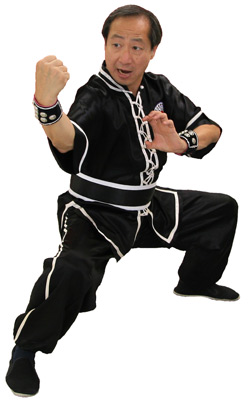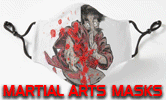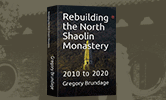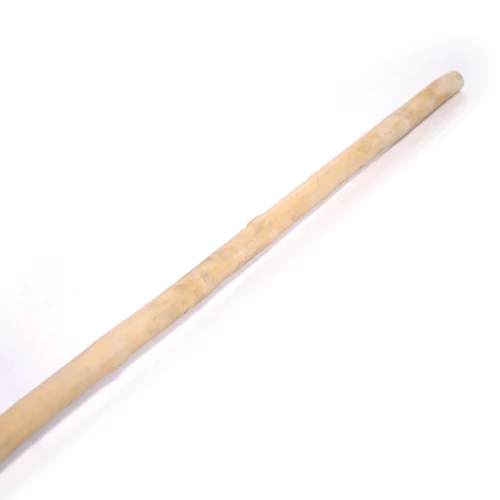By Gene Ching
GC: What was it like in the old days?

HL: In the old days, the time I was there, kid is still pee on the street. You could say it's modern in the old days but it's still not like nowadays. You don't have no radio. You don't have no TV. If you want to listen a radio, like a certain story, you have to go to what they call luk chang po ? a very rich store ? so you stand outside and listen. The kids don't really have much entertainment whatsoever. So after the school, either you're going to stay home, study in your room, or you go outside. But when you go outside the home or the building or the apartment, the city doesn't provide like basketball courts or any entertainment park or anything for you. So the kids just wandering around the street. So the best entertainment you can find ? the most excitement ? is pick a fight. That's really true. The Chinese always teach the kid not to fight ? be a good kid ? study. Get your best education. But guys like me, kids like me, we got a lot of energy, we look for some excitement. It's necessary for you to go pick a fight. Somebody is going to pick a fight for you anyway. They don't like your face. They'll fight you. Just for fun. So after a while, you like it. Then you go pick a fight too.
The fight is more like the Western people in the bar; they don't shoot each other, but they fist fight. In the old days ? different ? compared to nowadays. Nowadays you touch me ? I'm going to call 911. But in the old days, a fight is like everyday life. If you get beat, you get hurt, you make sure you avoid that kid next time. Or you want revenge? Then you start looking for something to practice. The best thing for you to do is look for some friends who know kung fu and learn how to beat the other guy up. Or if you cannot fight the guy, your revenge is going to be to get a couple guys, your friends, gang up on the guy. There's a lot of fight that's not one-to-one. You see something's not right, you got to start running. That's the old days.
GC: What was your most serious fight back then?
HL: I remember the worst time I ever had was one guy wanted revenge on me and got 15 guys ? came up with chains, axes, steel bars, hammers. Come after me. And chase me like two to three hours. Almost like a movie. You ran up to the stairway, they not going to let you go. You almost like a movie star. You jump from one building to another building. What you see in the movies sometimes is very true. It really is true. Those are true stories. You just have to run to survive. I was running like a dog. You out of breath. You hide and then you start running again. The only reason I saved my life is because I know the area ? I was so used to it ? and this group was from the outside area. After I got out, I went back and got my whole group and started chasing them back ? a couple of rough fights. You get hurt sometimes, you know? But most of the times, we ended up winning because we fought a lot and had more experience. But as you get older, you feel it's more dangerous. Then you better learn something. That's where the kung fu kicks in.
GC: Who were your first teachers?
HL: I trained with a lot of different friends. You don't know. You ask the guy. In old days, it's expensive. If you want something good, you have to baisee (055). If you follow the class, you are not going to learn anything. The best way I could do it was to ask all my friends, whoever is good, and use it. You keep asking them about each technique. So what I learned was all practical ? in street fight ? rather than forms.
GC: And Jow Gar? When did you decide to teach?
HL: I did not start Jow Gar in Hong Kong. I did start in the United States. When I came here, I work in a restaurant. The head chef was Jow Gar. One day, we were doing a Chinese New Year demo ? lion dance and kung fu ? and that's when I saw him doing a Jow Gar butterfly sword. I was with the Chinese youth club. I was teaching the Chinese youth club to do lion dance and kung fu and happened to see the guy I worked with ? the head chef. That he was doing kung fu surprised me because he never ever mentioned he knows kung fu. I find out that he was one of the really really famous and tough Jow Gar masters. His name is Gee Do Po. After that I met Dean Chin, and so we decide to open a school. In the old days, Dean Chin was young so he was scared. I'm not scared because I'm a street fighter. So I opened the first Jow Gar with the direction of Dean Chin. Chan Man Cheung would just be the head of the Jow Gar system in Hong Kong.
The reason what really triggered me to open the school was because people hear about and know kung fu and I fight pretty good, so the gambling joint hired me as a bouncer. In the old days, in Chinatown, at the time, when I start involved a little bit more in Chinatown, I sit there and watched before we opened, because gambling joint normally open at night, more people. So I was sitting one day outside and watched this old man walking by with the paper bag, and walking, relaxing, and happy, and all of a sudden a black guy walked by and grab it and run. And the old man was crying. I said, "What was that ? a bag lunch ? why are you crying?" He says this is the "gum fooey" money, you know, you pay every month, you stack up the month and you take that out and you have a big stack of money. And you send back to China. And all of a sudden, he lost all that money. In old days, money is so hard to come by. I looked at him and said, "I feel so sorry. What can I do for you?" I wait and wait, I can't find that black guy. But then things were happening; when I put my eye on it, there's a lot of white / black people, you say Americans, there's a lot of bums. Mostly alcoholic bum and street people. Because they're big. Chinese old men, in old days, were so afraid of troubles. They settled their own troubles with their own people, but you cannot settle troubles with Americans. It will happen. They go fishing around, they kick on it. Sometimes they walk by and spit on you. You don't see nowadays, but in the old days, yes, they do. I personally watched it. I couldn't stand it one day. I went there and beat up the guy. Put up a good fight, you know. Anyway, so I decided I'm going to clean up these people. So I gathered several of my students, some of my friends from Hong Kong, and we formed a group. And we start cleaning up Chinatown. Now the Chinatown, the owner associations, the Yip Sing, did not like it because I start causing a lot of trouble. And I do not listen to their people, so they really hate me. Whatever. I didn't care. We continued to take on the people who intend to start trouble. We ganged up on them. And after one or two years, the street was clean. Then I say, "Hey you know, I'm going to teach some Chinese people how to fight." So I opened the school. I then find out there's not many people going to join because people got no money. Well, if you're going to teach Chinese, you open a business. You have to allow other people to learn. So I say, "Ok, I don't mind to teach Americans too." Teach all cultures. So I opened first school that opened door for any race. Then I put the word out. And the Chinese older generation, they say, "You don't do that. You teach the kung fu to the outsiders. They going to beat you back." I say, "No, it's not necessary. If you teach the right culture, they will protect you," which is what I did. And I was right because they really want to learn it. They like the Chinese culture. Otherwise they would not walk in my school. I remembered when I first opened my school. My rent was only $75 a month. And the tuition was only $15 which was expensive in those days. $15 a month! Because the space is not that big, I only choose the students ? if he walk in, I don't like his attitude, I kick him out. I don't even accept him, because it wasn't making money. It was to teach my art. So that's how we started.
GC: You fought a lot of challengers back then. Tell us about that.
HL: In the old days, it's not like nowadays. You walk in. I don't like you. I tell you to leave. You don't leave. I call 911. But in old days, when you open a school, because you still have a lot of race problems, because I'm small, and people don't know about martial arts at all, the only thing they heard about it, was judo at the time. Judo or karate, was just getting popular. I opened my school in 1968, in summertime. When I opened the school, in the first week, on the second day, this boxer come in. This boxer come in and supposed to be three state champion, whatever that is. He got boxing shorts, glove on it. He was ready for me. And I thought he was come in just to sign up. So he looked at me and say, "Where's the teacher?" I look at him and I say, "Well, I'm the teacher." "You? You little punk?" Because I was so skinny. I was short, you know? So I say, "Well, you know, even small, I can teach." He says, "Well, can you fight me?" I say, "I don't fight here. But if you want to spar, I can spar with you." In Chinese, when we say fight, you fight to death. That's in the old days. You're not going to walk out without injury or you give up. I really don't think the Western people will understand the difference between fight or spar. We fight to kill. You spar, that means like friendly practice. Not even fight. So he say, "Well, can you fight me?" I say, "No, I'm going to spar with you." So he took the jacket away and I see, "Oh, he is ready, because he got the shorts and everything." In Chinese we call mo jong. Mo jong means you wear the uniform what you supposed to be. Like kung fu, you got a kung fu uniform on so you know you're ready to fight. Like you're sanshou, you wear sanshou uniform so you ready to fight. So this guy with his uniform and with the boxing gloves start jabbing me. I look at him and I say, "Wow, I never fight a boxer before, but that'd be fun." But in old days, the knowledge was not as much as now ? modern day ? because not everybody have a television. Or they never read a book about martial arts. So they don't know about all these different type of kicking technique, and all that. This was unknown to them. So I take that advantage because I know exactly how they fight after just a couple moves. So he keep jabbing me because he's so big. He weighs around I would say 195. At the time I was like 115. So anyway, because I'm pretty fast, he jabbed me; I just hopping away, side-stepped. He got so mad and say, "Why don't you fight me? I though you wanted to fight me!" I say, "Well, catch me first!" So he jabbed a couple more times and squeezed me to the wall and time for him to kill. So he rush in and want to knock me out. I turned around with my hand on the wall, get more support. I kick him right on the solar plexus. Once he got kicked, he say, "Oooooh!" He got really hurt. Then I give him a knee. When he fall, I give him a knee, right on his face. And then start pounding ? knock him out. And that was pretty quick. After that, what we going to do with the body laying there? All my students was so scared because they were new students. They know nothing! And I say, "This guy's heavy." I tried to pull him out of my school. I can't. So I say, "You guys, you, you, you" ? I didn't know the English names too well ? so I say, ?You, you, you," and point my finger. At the time, my English really wasn't that great. They say, "What?" I say, "Pull this guy out!" So I pick out four or five guys to pull him out. They say, "What we going to do?" I say, "Put him on the street." They look at me with a funny face. "What?!" I say, "Yeah, you do what I tell you to do." So we pulled him out right on the two-way street, right on the center, and drop him. (laughs) And go back to the school. And all the traffic stopped. Finally somebody called the police and take him to the hospital. When the police walked in and say, "You know what's happening outside?" I say, "Nope. We don't know. There's all my witnesses here. We were practicing here. We don't know about that guy." The police left and it was over.
GC: Were there any Chinese challengers?
HL: In old days, you don't only get in trouble with the western people but also your own inner people. A couple Chinese know kung fu or they were instructed at one time in China. They say, "You little kid, what can you do? What's so good about you? We're going to kick your door in a challenge and bust your door." When I heard it, then I say, "Let's do it!" The best thing for me to do was I knocked on their apartment and I say, "You want to fight me? Let's fight right now. Don't give no excuses. Don't get ready. Let's fight right now." And that's how I scared off a lot of so-called sifu, people who run their mouth. After that, nobody say that no more.
GC: When was your last challenge fight?
HL: There was a couple guys, but they were just from another school. Just friendly stuff, but they get hurt because we spar so much harder. I would say '73, that was the last.
GC: When did kung fu enter the public eye in America? What caused that?
HL: I think because Bruce Lee, actually. Bruce Lee used to come in my school in 1970. Because Bruce Lee, the kung fu all of a sudden start getting recognized. But the real benefit was the Korean karate, because at the time there is no kung fu school around. So the people thought that kung fu was martial arts. They thought karate was kung fu. Actually the Koreans made a lot of money on it. They take the advantage. Because Bruce Lee martial art reputation. Chinese never did benefit from it. Now, yeah, but all the money's gone (laughs).
At the time, tae kwon do start popping up everywhere. I remember another reason triggered me to open a school is that one of the few, Jhoon Rhee, I think he calls himself the father of tae kwon do in America, few of their black belt and from other schools too, watch our Chinese lion dance performance at the Chinese new year. They just come down because they heard there was some martial arts performance. They thought it was another karate school perform. I remember I did double butterfly sword and spear, and other did different weapons. And while I was doing it, there's a couple of black belts disrupting me. They say, "What are you doing? How come we never saw stuff like that before? What's the name of this form? How come we never see that in our school? Never heard of it!" They was getting really excited and that's what really triggered me to say, "Hey, you guys don't know nothing about martial arts!" Of course, afterwards, they questioned me a lot. But that's how really triggered me say, "Hey, if the Korean have that many student, why can't the Chinese kung fu have it?"
GC: What do you think of today's martial arts students?
HL: It's totally different. Actually nowadays the difference between the kids nowadays ? the new student, we call ? not that dedicated like the way we do before. We practice everything ten times harder and more focused. Nowadays, the kids have videogames, they have soccer game, all kinds of stuff that takes away their concentration. Anyway, still some kids like it. But nowadays, teenagers and kids more focus on respect, to be a better person, that's what the school focus on nowadays. Not like old days, when it was just self defense ? on that more than anything else.
GC: Doesn't that dilute it?
HL: Yes, because normal student now, at the most they average I would say half year to a year. Not like old days: people, once they learn a system, they stay with the rest of their life. So it's more loyalty in the old days than now. But of course, things have changed.
I think the tradition is slowly losing, especially when you have new system coming out, created almost like every month. The impact now ? in the old days it would be kickboxing ? nowadays is like MMA ? that would really, there are many people that think tradition is worthless. If you want to punch the guy, you have to learn the correct punch. So where that comes from? It's the traditional way ? before you become a good fighter. So everything is from the mother. No tradition. There's no martial art. The new school nowadays, what they do, just hit the bag, hard, show strong enough. There's no correct way. In Chinese, we learn kung fu, not just fight, but for health, longevity. So we involve manners, the way of your life, the way you're living, how to take care of family, respect the parent, the father and mother. That's all the traditional way ? the way of the kung fu. It's not just fight a lot. So there is a big difference. MMA is more like a ring fight. How many times you can fight in the ring in MMA? Eventually somebody is going to get hurt. It's not a way of life. You could say, "Hey, I'm a hero," for a couple of minutes, and afterward, there's a new one coming in, and no one knows about you anymore. Of course, some people want to prove that, "Hey, I can fight," or prove to you that "I'm the toughest guy." That's really the main drive for MMA.
Let's go back to MMA. MMA is a fist fight ? what we call limited system. A limited system is something like tae kwon do, judo, kickboxing, jiu-jitsu, MMA. All these we call limited system. That's my own opinion. For example, kick boxing, you don't grab. Taekwondo you don't use grappling. So they are limited. A good kung fu traditional system is widely open for many (different kinds of) knowledge. For example, in the old days, they learned how to treat injuries, herbs, to treat people, to help people, a lot of weapons. Why weapons? Every time you fight ? this is an MMA expression ? it goes to grappling, what they call jiu-jitsu. Every time you fight, you always end up on the floor. In an actual fight, every time someone grabs a weapon. Not on the floor. You look at like the western old days, you start fighting in a bar, what do they do? Grab a bottle and hit the guy on the head. In a real fight, if there's a chair there, if there's a bottle there, if there's a knife there, they will grab it and hit. It's not the first thing on the floor. The first thing is people will grab a weapon. You say, "Well, you're untrained." Whatever that object you pick up, will you be able to swing it correctly? Effectively? Whatever you have in your hand, untrained, may be knocked out when you swing it at the guy. Of course, if your opponent is a real martial artist, then you get in trouble. Unless you train with a weapon. Look at the samurai, the Japanese samurai. He can cut you in half in less than half a second. So? What's that mean? He's a guy that's trained with a weapon. But he's still limited because they only know how to use the samurai. But kung fu is different. A major kung fu system, something like Hung Gar, Choy Gar, Choy Lay Fut, is unlimited system. We even have a shoe form, iron ruler, a regular one like fan, all the stuff you can grab and you can use, what we call a secret technique or a special technique, to use whatever you grab. So you have an extreme short weapon, short weapon, medium-size mid-range weapon, long-range weapon, then you have chain whip, what we call soft, you used to tie on your waist.
GC: Hold the phone. Go back to the shoe form.
HL: We even have a shoe form, what we call the iron shoe. For example our shoe form, they look and say, "Hey, that's pretty cool." But actually it's a major important. Let's say you have a dagger pointed at me and start flipping the knife in front of my face or my throat. Now I'm empty-handed. What can I do? American will say take a belt out and start whipping. You don't know how to use chain whip. You don't have those techniques. How can you against a sharp knife, because you can't afford for one second that he's able to touch you. When you get touched, you get cut. You bleed to death. All those fancy techniques ? you see people in demonstrations, do it on videotape ? all those things look like they work, but there's no such thing. They're not practical at all. You take a shoe. The shoe becomes what? A hammer. If you got good technique, you don't have to worry. You can smack him where he holds a dagger, or you can smack him on the kneecap, shin, and that's a strong blow. Even his elbow, inside of the hand, smack him on the head. Those techniques are as dangerous as a knife, so you can defend yourself. That's why you need different weapons. That's why you need weapon training.
| Discuss this article online | |
| Kung Fu Tai Chi: September/October 2008 |
Click here for Feature Articles from this issue and others published in
2008 .
About
Gene Ching :
Master Hoy K. Lee can be contacted at his school, Jow Ga Kung Fu and Martial Arts Supply Store, 3221 Virginia Beach Blvd., Virginia Beach, VA 23452 (757) 463-8888 jowgakungfu.com.
![]() Print Friendly Version of This Article
Print Friendly Version of This Article
















